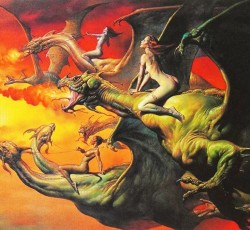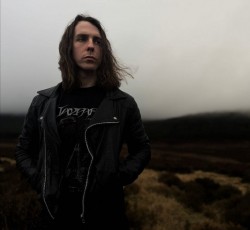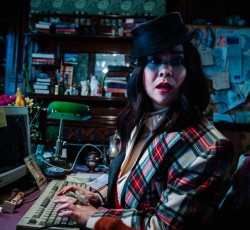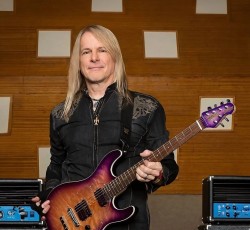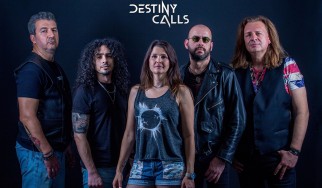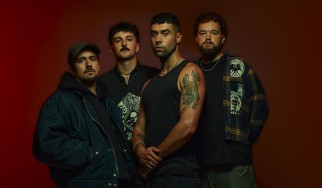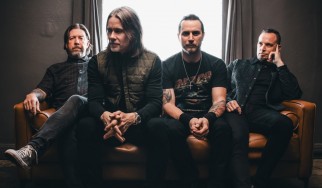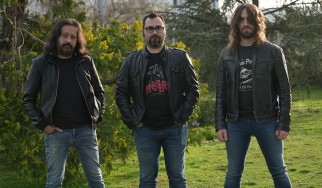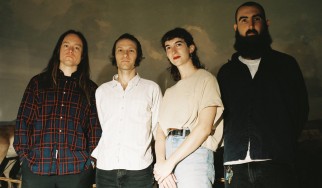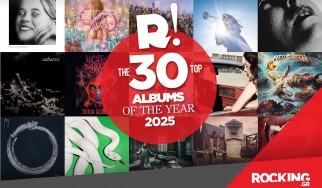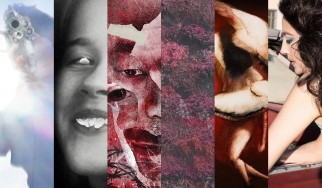Adam Wakeman: "I feel very fortunate that people still love coming to concerts"
An in-depth conversation with one of the most talented and loveliest guys in rock
Adam Wakeman is a musician I admire. He is both an amazingly talented artist and a great guy! Be it through his own projects - Headspace, Jazz Sabbath or his acoustic collaboration with Damian Wilson - as a member of the Ozzy/Sabbath family and even as a hired gun, he always shines with his playing.
Initially we planned to have a face to face conversation when he visited Athens last December, but alas it wasn't meant to be. We took a raincheck and set up a video interview in early January, a few days before the new album of the Damian Wilson & Adam Wakeman project, called "Can We Leave The Light On Longer?" was released and the duo set out for a UK tour.
In this lengthy interview it seems that we had the chance to discuss pretty much about everything (and we could have even gone further, easily). We talked about the (unexpected) success of Jazz Sabbath and how some people still fail to see the joke. Then we touched upon his collaboration with Damian Wilson, their new album, and some really personal tracks that are on it. Of course, we broached the Headspace subject that led Adam to share some very interesting thoughts, facts and concerns over the music industry and the not so bright future for young bands. And then we talked about his guest appearance with Deep Purple recently and of course about his current relationship with Ozzy, among many more interesting topics.
Ladies and gents please read one of the most interesting interviews I’ve conducted with one of the loveliest guys in the music business.

I'm sorry we didn't get a chance to talk at the show. It was such a crazy day…
Yeah, I know. It was a crazy day for me too. I was all day on the road and I really couldn't stop laughing when you mentioned that you aged that day because of the traffic… Because, I felt that in my bones…
Right… (laughs)
Yeah, it was exactly how I was feeling all day. Stuck in the car, trying to get to a destination that would normally be ten-minute drive and then I’m one hour in the car. It was a hell ahead of the holiday season. There were quite some things you said during the show that made me laugh, but that one stuck with me. You nailed it…
(laughs)
Jazz Sabbath is my band. And everything changes when you're in charge of your own destiny
So, let's start our conversation with your recent visit to Athens. How was it? I mean, apart from the traffic, how did it feel for you coming back after such a long time?
It was fantastic! And to play in Thessaloniki and have Gus G get up and have a have a play as well was brilliant. We became very good friends when we were working together with Ozzy. I clicked with him straight away. I I've got a lot of respect for Gus. And obviously we spent quite a number of years travelling around the world together and he would tell me about his hometown, Thessaloniki. I always thought it would be nice to go back there or to visit. So it worked out really well that I could take Jazz Sabbath there. It was perfect. It was great!
You know, we arrived the night before, so that we can have a little bit of time to have a wander round and find a bar and a restaurant. Because the problem has always been, and anybody that will tell you that's involved in music and touring, that you get so little time in the place that you're playing. And Jazz Sabbath is my band, so I can decide to stay an extra day or go a day early. Yeah, it's funny. Everything kind of changes when you're in charge of your own destiny. And it was lovely to come and spend a day the day before. And then the only thing was coming home, obviously, because it was so close to Christmas. I couldn't really stay any longer. But I would like to have stayed for a bit longer…
Yeah, I think that it would be even nicer if you could come maybe in the summer if you can handle the heat, of course. But we have some good places to play here, like open theaters that would really suit any of your music outlets, not only Jazz Sabbath. It would be really nice. I think that's more feasible because, I sensed a really good reception from the crowd, like "wow, they're great. This this guy is great". So I think that will plant a seed that will maybe start a connection between Greece and you. I'd love that to happen.
Yeah. Well, I think we're planning a bigger tour in 2025… early 2025. We're already talking about coming back to Greece in 2025. So that will work. That will definitely happen.
I honestly thought it was going to be 90% metalheads and 10% jazz fans and often it's the opposite way round
Ιt was an excellent show as I was expecting it would be, and the feedback was great. So, I have a feeling that Jazz Sabbath seems to be maybe the most successful of your outlets, or maybe the one with gaining the most recognition. Would you say that it's true and if yes, why is this happening?
I mean, you are right! It is most definitely the most successful sort of outlet of a project that I have. I think part of it is that it resonates with so many people, the Sabbath connection, you know. Whether people like and listen to Black Sabbath songs, they know who they are and they can recognize themes and melodies, or from films they've watched with "Iron Man", or "Paranoid" or whatever. So there's a familiarity and a legacy that's attached to Black Sabbath, just like Iron Maiden, Metallica, Deep Purple. All these bands have got this kind of ongoing legacy and for me this is a way of just taking a little offshoot from what people know them as and developing it in a way that is maybe more accessible to people that wouldn't go to a, say, a Black Sabbath concert. Because there's a there's a real mix of people that come to shows. And I was surprised to begin with. I honestly thought it was going to be 90% metalheads and 10% jazz fans and often it's the opposite way round. It's predominantly jazz music fans that are coming. And then you see a few Black Sabbath T-shirts spotted around. So that surprised me.
And to be honest, I had no idea it was going to be this successful. Every project I do, I never start it thinking "Right, how much money can I make? How busy am I going to be? How many shows will I play? How many people can I get to a show?". That’s the wrong business. That's the wrong approach. That's business-music, not music-business in my head. And, you know, it has to start from a genuine place and I genuinely love comedy and I love jazz/blues, music. I love the fact that it worked.
It took years. It took four years before I got the thumbs up from Ozzy and Sharon and Tony just to say that they’re OK, because I didn't want them to be offended in any way. I didn't want them to think that I was making a joke out of them. There has a comedy background to the story which appeals to me and makes me laugh. I don't mind. Some people get it. Some people don't. Some countries have different humor, so they're not quite sure. But for me it comes from a genuine place. I love the music. I love the band. And for me this is just something that’s an extension of their legacy.
If the Jazz Sabbath story fools one person and then they come back and go, "Oh yeah, you had me", then it's a job well done for me
It’s true. You said that there are people that don't get it. I had the same problem in the very-very beginning. Are there still any people that are offended or don't get the joke? Is there any funny, reaction that you had and you still remember?
Honestly Chris, I've had some brilliant ones. I did an interview with a jazz publication in New York, and I was 20 minutes into the interview and it was done on a WhatsApp call. It wasn't on a zoom call. It took 20 minutes and the lady I was talking to said "I feel so stupid. I actually thought that you'd been ripped off by Black Sabbath and you were the original band". So she'd done 20 minutes of the interview, and I was kind of in character… (laughs) So that was the funny. That's the funniest one.
But, I mean, the best thing is when you look at the two short documentaries online and the comments on there are brilliant! Because for me, if it fools one person and then they come back and go, "Oh yeah, you had me" then it's a job well done for me. I'm planning the next one, and it's going to be even more extravagant on the film… (laughs)
I now understand Alice Cooper or Ozzy Osbourne... I understand how that character becomes part of the show
Can't wait for it. But, yeah, the humor is brilliant. The music is also fantastic, but the humor, you know… I couldn't stop laughing when I saw those videos...
Also, I've got something that has been very… it's purely subconscious, and this wasn't planned at all. And I don't want to draw comparisons that seem incorrect, but there's something about playing a character that changes you. I love, as I said, comedy, I love film, I love the whole process of entertainment and making people laugh and making entertainment, the whole process. I love it. This is the first thing I've ever done where I've dressed up as somebody and I've put makeup on. And it's the weirdest thing. It changes you. And I now understand Alice Cooper, Ozzy Osbourne... I understand how that character becomes part of the show. I would find it really weird to now do a Jazz Sabbath show, not with grey hair and makeup on and wearing 1970s clothes. It would feel weird… (laughs)

Do you plan to expand the project? You know, maybe do songs from another era of Black Sabbath or do you plan to keep it strictly in the first period of Black Sabbath?
At the moment, that's the plan. I don't want to think too far ahead. And I don't want it to become predictable. You know, I don't want it to sort of just be, 10 albums later and I'm just picking random B-sides from Tony Martin era. I need to keep the quality control high. So that's the way I'm looking at it. I just look at it one album at a time. And it depends what else is going on. The reason we're not playing many shows this year is I'm pretty much booked already this year. Give or take three or four months. I've got the tour with Damian, I'm doing a tour with my dad, I'm doing a tour with Tony Hadley, I'm going to America with Uriah Heep. I look at my diary and I'm now looking at the end of June. And it's crazy how the year has filled up. It's like that some years I'm looking at an empty diary. So it's weird that now I've got a bit more control back of what I do, you have to plan things a long way ahead, which is why I'm looking at 2025. We've started looking at the next Jazz Sabbath tour in the autumn of this year for spring 2025, because you need to make sure the routing is right, you need to make sure that the countries are right.
And the biggest problem is finding agents and promoters that understand the project. I mean, you came to Athens and you saw we had a sold out show. It was packed. It was great. And that's consistent of where we're going, which is fantastic. But for agents, they're very confused, because they're like "Well, what is it? Does it go into a metal club? Why can't you use an electric piano? Why is there no singer?" You know, all this kind of stuff. The people that get it, the few agents that have got on board understand it, which is how it's working. But the rest of the time, myself and Mark at the record company, we've just gone "Well, we're not going to sit and wait for an agent to come to us". So we just booked the shows, we booked the tours we booked the shows. It's something I've done for years with Damian, I've always booked those shows, and that's part of the business side of the music. And it also means you're less likely to be ripped off anywhere, because you know what’s going on.
The music business seems to be getting harder and trickier, especially in the post-pandemic world. At least that’s what I get from musicians and people that work in the industry…
Definitely!
What I've learned over 30 plus years of being a musician and writing with lots of different people is you have to be prepared to just throw something away
You're starting the first tour of the year tomorrow with Damian, and you have your third studio album - fourth if we take "Stripped" into account - that you've made in the last eight years. And you have a longer history together of making music together, but it seems that this collaboration between you and Damian has become something pretty stable for the last ten years. So, how do you feel about this project, the connection and the new album that you have?
I'm really proud of the new album. I think we've made a very personal, honest album. Working with Damien is always brilliant. I love working with him. He's a very good friend of mine. We tend to get together for a few days and we just sit at a piano with a guitar and we just come up with some ideas. Then we leave it he comes back and we spend another couple of days and we pull some ideas together and he'll sing some melodies on them. We work really quickly and really well in that environment, when it's just the two of us. And then as with life we're busy. I'll go off and do another tour here, go off and do an Arena tour or whatever it is. And then in that time he'll be writing lyrics and firing up melodies, and I'll work on the arrangements back in the studio. We'll come back, we'll do another few days together, working on each track and it's a really productive way of working. Because we're such good friends, it's really easy to say to each other "That's rubbish" or "that's crap". "Let's try this". "That's not working"… When you're working with new people, you have to be very careful how you approach your writing. Because people can get very offended very quickly. What I've learned over 30 plus years of being a musician and writing with lots of different people is you have to be prepared to just throw something away. If it's not working, then that might work for another project another year, 20 years down the line. You never quite know what's going to fit. The example of this is I had a piece that I wrote on guitar. Originally I thought it would be good for a Headspace type idea. It never worked. It didn't fit with anything. So, it just stayed on my iTunes. Again, the relationship I have with Pete Rinaldi and Damian and Lee Pomeroy and anybody in that band, we can just say "that's not working. Let's move on." without anybody getting offended. So with that particular idea, it stayed on my on my iTunes for a little while and then whilst I was recording the "Scream" album with Ozzy, Kevin Churko, the producer, was like "I'm looking for something. We need this kind of closing track for the album. I want it to be like this". And I said "oh, I've got this little ditty, this little bit". So I played it to him and he was like "That's it. That's what we're going for. That's what we need to close the album". So that is the track essentially, which is called "I love you all". It's the last track on Ozzy’s "Scream" album. So, you have to be prepared. I’ve worked with people that are difficult, that will go "that song is going on this album. I want that! That is the Best Song in the world. We're putting it on this album". And it's like that's not the case. There’s a place for everything and you have to be prepared. And the honesty that I have with Damian is that that we can work together without us being offended.
Yeah, it's really important.
And I also like the fact that we can we can tour very efficiently, just the two of us be in a van and drive around. We don't have the pressure of having a whole band and crew and all that stuff which cost a lot more money and comes with added problems. So for us it's really easy and the start of the year is normally quite quiet for musicians. So we just said "Well, let's tour in January. That's the best time for us to tour."
I also think that "Can We Leave The Light On Longer" is a lovely album. I keep coming back to it. So, did you change anything this time around? Did you try to shake things up with this new album? Or did you just say "let's write some songs that come up naturally for us in the way that we do all these years?"
Yeah. Pretty much, yeah. The approach didn’t change. We wrote the same way that we would do. The only thing, I think we used a bit more instrumentation on this one, where I recorded some Hammond organ on a couple of tunes, we had trumpet and we had some drums on five tracks as well. But we just let it evolve. When we sat down, we were like piano, guitar, voice. Let's see what happens... And it's only once you start producing the tracks in the recording where you think actually what would benefit this song. And you think a choir at the start, for example on "The Man From The Island". So that’s was when you start going "OK. I need to put a choir together and record that". And then we added some drums. Damian is so open with everything, he's a very natural person to work with, so we just let it choose its path. And when it was finished, it’s finished.
Of course, I’m gonna highlight two specific tunes, because they're the ones that you handle the vocals as well. First of all, you've taken vocal duties in the past, on songs like "Catch When You Fall" for example, so are you feeling more comfortable with taking the vocal duties from album to album? Because it seems so…
For me, as long as I'm comfortable with what I'm singing, then then I'm happy. I'm not a natural singer. I sing, but I'm not a natural singer. Damian is a natural singer. He's a front man and a singer. And that is his forte. You can listen to Damian on an album and then go and see him live and it will bring a whole new way of looking at him. He's a frontman and a very-very talented singer. I don't look at myself as that singer. I look at myself as a musician who sings. And for me, as long as I'm writing the songs and it's in my register - because I don't have a particularly high voice - then I'm comfortable. The biggest problem for me is remembering words. I've got a terrible memory. I can remember three or four different band sets. Without any notes? Absolutely! Fine! But you give me one line to remember it in a backing vocal and it's just gone. I don't know why that is, but that's the biggest struggle for me is remembering the words.
Maybe your mind is keeping free space for all the notes…
(laughs) That's exactly what I think it is. Yeah, my wife would probably beg to differ. She sends me to the supermarket and I come back with the wrong things. She's like "I just said bread, milk, eggs and you've come back with washing up liquid"… (laughs)
I remember my dad said to me really early on, he was like "you're only as good as the worst person in your band". Which was a really good lesson...
So the first song that you are singing on is "The Man From The Island". Who is this man from the island? It seems that you owe so much too much! Especially, because he taught you to play Steely Dan… (laughs)
His name is Anglin Buttimore. It's an unusual name. I moved to the Isle of Man, when I was about 15 or 16. My mum and my dad had separated many years ago, so I always lived with my mum and my stepfather. And I when I got to 15 or 16 I wanted to live with my dad, so that I could be closer to the music and get more involved with music. So I moved to the Isle of Man, which is where my dad lived. And the first thing I did was to find musicians and start playing in some bands. And on the Isle of Man, which is this little island between England and Ireland, at the time there was 65,000 people on this island. It’s a very small island, but the music was everywhere. Every pub had music. And this was in the 90s, early 90s. It was just a mix of Scottish and the Irish music, Celtic music plus rock and pop and old 70s rock bands. So there was just so much music. It was brilliant. So I found myself in a band with much older people. I remember my dad said to me really early on, he was like "you're only as good as the worst person in your band". Which was a really good lesson... (laughs). And he said "by working with older people, you're missing out…". Because I've been in bands before at school and the problem is you've got different levels of maturity with school bands. You've got a guitar player who only wants to hear himself and turn up and isn't interested in playing any of your songs or whatever. You've got all these different dynamics, the bass player who fancies the drummer’s girlfriend. It's all like nightmare. You know, kids stuff. So I went and joined a band of much older people. I was 16 and then went and joined this band and they were in their late 20s, early 30s. And that was an eye opener for me, because they were much more professional, they all had jobs. So the shows were booked, they were like "right, we do a Wednesday every night at this pub. We do a Friday every two weeks at this pub. We do this hotel once a month" and it was like "This is brilliant. This is like a one year long tour, there's shows every week". It was all cover songs. And they were really good musicians.
Anglin was in this band. Anglin was playing bass. And then he played some songs on piano. And he was a great musician. Very, very lovely guy. He died sadly in 2020 and it took me a couple of years to write that song. I just wanted it to be a tribute to him, because he was such an important person. You know, think you’re a teenager, you're playing in bands and pubs with all these people, but you still have all the teenage problems and you still need to talk to people. And he was a man that I would talk to, because he was just so passionate about music and he was a knowledge on life. I'll give you a quick story that he told me whether this is relevant to anything. He used to play piano for Shakin' Stevens, who is a pop artist in England in the 80s, but he was popular in the 70s. He was from Wales. And Anglin was playing in his band. And he said that they were playing in in this pub. And when they went to get the money, the man from the behind the bar said "Yeah, it's all right lads. Just put this one down to experience". And Anglin, they all picked up a barstool and threw it at the bar at all the optics and broke all the bottles, all the wine bottles, all the spirit bottles behind the bar. And they said "You put that down to experience this time"… (laughs). He was just full of these stories, it was brilliant.
Well deserved!
Yeah, absolutely! But he was great. He was. He was a really important person in my life and I hadn't really appreciated how important until I started writing that song.

Yeah. And it's a really nice tribute…
Thank you!
The other song that you sing on is "November", which full of melancholy and British nostalgia. And I have to admit, I've always liked this kind of feeling that you British people and musicians can express through music. It's really nice and it also seems very personal to you, with the photograph and stuff...
Yeah, the weird thing about that song is I played it live a few times as I was writing it, and people asked me about it. It's very personal. The whole song is basically about a character who is going through dementia and the effect that has on his family and his grandchildren and everything else. And I've only really had one family member, it was my stepfather's mum who had dementia and I saw that, I saw a window into it, but it wasn't around me all the time by any means. But I had other friends who would tell me about their experiences with their parents or their grandparents.
So what I did is I looked at how I thought that might affect me, if that was me as I was getting old. So I pinpointed a few little things that currently make complete sense to me. I'm always saying to my wife "Oh, that's a nice dress. Is it new?". And she'll say "You've seen me wear this 10 times". That is a typical man-woman conversation where basically a man doesn't notice a lot of the things that they should. But I put that into context of at what point does that then become an issue when you're older and you've maybe you are onset of dementia and you can't remember some very important things. Like somebody in a photograph… I actually had a picture of my daughter and one of the things that that stuck with me was that it was her first ice cream. I remember we gave her first ice cream. Do you have kids Chris?
No, I don’t…
No? Ok! So there's a few moments when you have children… It's borderline child cruelty when you give them their first lemon and then you give them their first ice cream. It's the most incredible thing to watch. If you've got a drink with a piece of it and the time you give the child a bit of lemon and they're like, "Oh, lemon!". And then they taste it and they have that "Ahhhh!" reaction. It's the same with an ice cream. Give them an ice cream and this sugary, creamy thing gives them this insanely look on their faces. So I have a photograph of the first time I gave her an ice cream and I have a picture of her doing that. And then it was like on her head… there's Ice cream everywhere. So that's where that bit came from.
But, there's pictures of us walking on the beach and I thought that would be a really awful feeling to not know that that's you and that experience that you had with your child or your grandchild. So it's pulling in a few personal experiences. But, I don't know how people are gonna react to that. I'm hoping people that have family members with dementia, that it might help them understand a bit more or give them some kind of comfort. I don't know. But, yeah, it’s a lovely song. I’m very proud of it.
Another standard track is "The Battle Of The Bare Knuckle Fighter", because it seems different from the usual songs that you write. You know it's a different tune, more up tempo with the trumpet and stuff. It even has a jazzy feeling, doesn't it? So how did you come up with this certain track and decided to include it on the album?
From a musical perspective, it was just an idea, we sat down at the piano and I just started playing that cool "Ding, Ding, Ding, Ding" thing [editor: Adam sings like he’s hitting a certain note on a piano] and it reminded me of a song by ELO and Jeff Lynne, "Mr. Blue Sky". And I like that bouncy feel of the song. So it just evolved like that really. Damian is in charge of the lyrics and the melody for that one. I think that's dedicated to a friend of his, a producer friend of his called Dario G, his real name is Paul Spencer - I think you might have to check the name with Damien on that one - who's battling cancer at the moment. So that's the influence behind that one.
But, yeah, it had a different feel. One of the great things about doing projects like this, with somebody like Damien, is that it doesn't matter what we do. I mean, he wrote a song called "Red Socks" on our last album, about losing a pair of socks. I mean, nobody writes a song about losing a pair of socks. Obviously, it has a much deeper meaning and undertones, but you know he's never frightened of a title or writing a song about anything. I've never known a singer be able to put some of the words that he writes in a song before. It's almost like he does it on purpose, but he doesn't… if that makes sense… (laughs). In one of the Headspace albums there's a line that says "Heinous corpuscle" [editor: on the song "Killing You With Kindness" from the 2nd Headspace album "All That You Fear Is Gone"]. I don't even know what either of those words mean, let alone manage to shoehorn them into a verse of a song.
It's a lovely song. We don't limit ourselves to a standard ballad format. We just see what happens, which songs work, which songs don't work, which ones we like and we enjoy. And then that goes on the album.
Because there's no point in throwing an album together that's average or OK; that’s not the point
Well, that's a mindset that I always like to get from musician. So, let's go to my let's say soft spot from all your projects and works. This next question won't take answers like "we don't know", "We'll see" or "never" as acceptable. So when do we expect the return of the mighty Headspace?
I'm afraid the signal’s breaking up... (Many laughs)
We tried to book some shows this year. We were booked on the Prog Cruise in 2020 I think… or was it 2021? And COVID cancelled that. We were rebooked to do it and then Damian was unavailable. And this is the biggest problem with the band: we are all working musicians, we all have families and we need to earn money. We can't do this... We don't have jobs where we can take three weeks off a year and then tour with the band. For all of us, this is our income so we have to prioritize a certain amount to make sure we keep roofs over our heads. The difficulty with Headspace has always been schedules and getting everybody together. It's not we have split up or fallen out or anything like that. It's purely finding the time that we can dedicate to it and make it great. Because there's no point in throwing an album together that's average or OK, that's not the point. I'll be honest. I can be honest with you… we haven't made a penny out of any of those albums. We're signed to a label which is part of Sony and they didn't pay enough money for us to make the album. We did the two albums because we love it. It's not a sustainable business model for a band like Headspace to dedicate the time to.
The major labels and streaming services have basically put a nail in the coffin of professional musicians who earn all their money from making music
I get it…
With a major label, that's the problem. I can talk for days about this and how the major labels and streaming and all the rest of it has basically put a nail in the coffin of professional musicians who earn all their money from making music. How it has taken away the artistic development. Because there's just no money to do it. There are bands that have managed to make it work, but it has taken 10 years.
Bands like Haken… we started at the same time as Haken. They all had jobs, they were all working in industries outside of music. Or a lot of them did. so they could go "Well, let's take two weeks off. We'll all take two weeks off holiday at the same time, and then we'll go and do this tour". They weren't dependent on the money and it's worked great for them. They're doing really well. They’re a successful band and credit to them is they've played a very long term game plan with it. And it worked. And it's that should be a lesson to any band that do want to make their own music and be their own thing. If that's the priority, then that method works really well.
It would cost us money to make a new Headspace album under that model
It must have been difficult along the road for them as well, and I'm pretty sure there must have been times that the guys from Haken would have consider quitting trying, because it's hard finding the money and finding the courage to overcome all the obstacles. I know that very well, cause it's not that I only love Headspace, I love prog music in general and a lot of bands in the genre and I know their struggles. But I really do love your two albums. I think they're brilliant. At the same time, I do understand the situation as it is. I just think it’s a pity because that it’s a great artistic outlet with two brilliant albums and it's kind of sad to acknowledge the fact that it's not enough to keep you afloat, and that you have to sacrifice it because you have to do other things. And if starts align, there may be something new from this band. It's a harsh reality. But that doesn’t change the fact that I’d love it if there was a third Headspace album. And I'm quite surprised how this business model that you mentioned - and you said you could about talk for days - hasn't found a way to work somehow. I mean, there should be a way to keep sustainable artists like you and bands like Headspace. I don't know how they haven't found a formula...
I can tell you the formula. The formula is the way that I have developed Jazz Sabbath along with Blacklake Records. They're an independent record label that sees the value of having the artists make the money they should make from the music they're creating. Because, there's no point in…
I'm not going to get into figures, but if you look at the way that Jazz Sabbath works… yes, of course we pay the publishing to Black Sabbath. They get all the publishing money. But, we make money on the merchandise and all that stuff. With Headspace we're signed to a label. When we signed with them back in 2010, things were very different to 2024. And it's just not if we made another album. It would cost us money to make it under that model. That's the biggest problem. And we were prepared to do that in 2009 or 2010.
To buy the albums for example… I'm just I'm giving facts about the situation. I'm not having a go at the labels. I'm not having a go at the way they run the business. And this is not exclusive to Headspace. This is a common problem. You ask a lot of bands how much it costs for them to buy one of their albums from a major record company to sell on tour and after the tax and shipping it will be over €7, maybe €8 per CD to sell. So if you're selling a CD for €15, you first of all take off the commission to whoever it is that's selling it for you, which is normally 15% or 20%. You've also got 15% that you'll be paying normally to the venue. So, all of a sudden you're selling CDs to people that want to buy it, but you're making no money. What's the point?
I'm not dependent on Headspace. None of the guys are. When we do it, we'll do it and it will be because of the love of doing it
Yeah, there’s no point doing it…
You know, what's the point? I don't mean what's the point, because obviously there's a point of spreading the word. But I mean, what's the point of making everybody else the money when you need to earn money to live and develop your art as a musician? It becomes very disheartening when you see it. I'm not dependent on Headspace. None of the guys are. When we do it, we'll do it and it will be because of the love of doing it. What frustrates me is that all the bands that are 20 years younger than us, who are basically having this problem, going "Oh, OK! We might get 10,000 streams". Brilliant! That's €2.00 or whatever... Oh, and that's got to be split between five people in a band. It's a really challenging time. All of that said, I do have a folder on my computer here that says "Headspace III"...

News of the day!
That's all I can say… but it might be another 10 years by the time we finish it… (laughs)
Yeah, I'll be at the age of Milton Keynes...
Yeah, exactly. Maybe he'll be playing keyboards by then. I don't know… (laughs)
Are you maybe in contact with the label to reissue the first two albums on vinyl? I don't know if there’s any business logic for you, but did you have conversations about it? Because it would be good to have them available. First of all, if one wants to buy those Headspace albums, I'm not sure he can find them. I have them on CD cause I bought them when they came out, but if anyone wants to buy them now, I'm not sure he can find them anywhere.
They don't see it from a fan perspective, they just see it as a money perspective. Is it worth them pressing 500 vinyl? They're not going to do it, they're not going to press up 100. They're not gonna. They're not interested in these small numbers. They're more interested in making sure that they can get 50,000 Taylor Swift albums at the pressing plant. It's not a priority for them, you know? And I understand as well, because we're not a particularly active band, but from a fan perspective, as you were saying, there is still a lot of people, we get a lot of messages from people that are finding the band for the first time, even though we've been around for 15 years or whatever. I think it's unlikely that they would relinquish the copyright back to us. If they did, then yes, we would press up some vinyl and we would put it through an independent company.
I won't say it's not fair, because I don't know the details, but if you're not planning to do something with it, why don't you give it back to artists to do something with it? In the end there’s the music and the fans that don't get what they want. No one else wins.
Yeah, absolutely. It's been a long running music argument from artists and record companies that goes back to the 50s.
You can't recreate that feeling of being with a group of people, hearing music and watching people play music. And that feeling is for me the most important part of being a musician
I was hoping that guys from a label like Inside Out who are music fans as well - I've talked with them and I know it, they do know a lot about progressive music and they've collaborated with many great artists - that maybe they’d have a slight different mindset...
I agree. That's why we originally signed with Inside Out and Thomas was always a big fan of the band. The problem is the business. They're owned by Sony. It's not a small independent label. It's an arm of a major label. So, they have to follow certain business goals. And again playing devil's advocate, we signed a contract with a record company that made it very clear what the rules are. I'm not saying "Oh, poor us!". This is just the way it is. If things haven't worked out in a way with the rest of the music business to keep up with, we are going to have a huge gap of talent around the world, which is directly due to streaming I guarantee. We will have these artists that would normally be developed by a label and supported, and spend the first three or four years of their careers making records that didn't really make money, but they were supported by a label that wanted them and could see the future of that band or that artist. Sometimes it worked, sometimes it didn't. We're gonna see a big gap, because no one can afford to do it. The record companies can't afford to do it because they're not getting the money from the sales, not just the artists. Everybody's trying to change the way the business works.
I feel very fortunate that people still love coming to concerts and you can't recreate that feeling of being with a group of people, hearing music and watching people play music. And that feeling is for me the most important part of being a musician. It's great making albums in the studio. It's great until you see somebody singing your song or watching the solo and you can just see the pleasure it's bringing people at the show. That for me is what it's all about. I'm 50 in a few months, and it's taken me this long to realize that's actually the key piece.
So, back to Headspace, which I know was the original question… we did try and book some shows, but we couldn't get enough shows together to justify it. Because we'll need a few weeks of rehearsals… And as I said, we need to get a whole a whole run of shows. So, we are all still keen to do that, because we love playing the music and we love hanging out together. It's now a case of we've just got to try and work out when we can do it and if we organize more shows so we can make it worthwhile for everybody.
Fingers crossed! And if you get the recognition you deserve, that’s even better. Now, before we get to the ending of this interview I'd like to ask you about a different topic, cause recently got a gig that most musicians would kill to have the opportunity to take. And I bet you can put it on your CV, as you were invited to play keyboards for the mighty Deep Purple! So tell me, please, how did you get invitation? How challenging it was? Because, it was a last time minute invitation if I'm not mistaken. And how did it feel to be on stage, being the keyboardist of Deep purple, even for a night? That's quite a status in the rock music…
Well, I would be a liar if I said it wasn't a very emotional experience. It was. First of all, it came about because Don Airey was ill, he was unable to do the show. And my name was mentioned as a possible cover for this one show in India, in Bangalore. And I got a message from Simon McBride, who is the guitar player in Deep Purple now. Simon came in to replace Mickey Moody with a band called Snakecharmer, which I was in about 10 years ago, maybe longer. I can't remember…
You're never going to say no to go and play keyboards in Deep Purple
Yeah, I remember that band…
When Micky Moody left, we recruited Simon who was this young, up and coming guitar player. I got on great with him. We know how each other play. It was great working with him back then. I speak to him, once a year or so I bump into him every now and again. So when my name was mentioned in the meeting, he said "I've worked with Adam". And I know he can do the job. I can't remember if... I don't think I'd work with Ian Paice and Gillian before or I've met any of the other guys. So I had a phone call. I think they had a meeting and I had a phone call with the management. And they said "are you available?" It's only it's in 10 days time... In my head I'm thinking "10 days… It's not a great deal of time". The reality was this was a Sunday night. I was on the phone to the manager on the Tuesday. I was leaving for the Jazz Sabbath tour in Europe for seven days. So in essence, I had two days left either side of the Jazz Sabbath tour to learn the material. Which is a very short amount of time to sort out an hour and a half set… (laughs). Obviously, I didn't tell them that. The answer is going to be yes. You're never going to say no to go and play keyboards, to cover for Don Airey in Deep Purple. So I said "yes, I would love to". And then I just had to work out the logistics. So I pretty much got back from the Jazz Sabbath tour and the next day flew to India. But yeah, the guys in Jazz Sabbath were pretty sick of Deep Purple by the end of that tour because it was all that was played in the van, over and over again.
My dad was very close with Jon Lord and they had a huge amount of respect for each other
They had to put up with it. It was something special.
Very special. A multitude of emotions. My dad was very close with Jon Lord and they had a huge amount of respect for each other and I know my dad spent a lot of time with him towards the end of Jon's life. Dad always spoke so highly of him, so there was a connection there which filtered down to me. I then felt a bit of a connection and responsibility to make sure that I play the part that Jon had written. At the same time, I've got a huge amount of respect and admiration for Don Airey, who has basically been almost like a subconscious mentor to me because he's been in Ozzy’s band, and he's been in all these different bands that I've followed around or influenced by. I spent years playing Don's parts in Ozzy’s band. I've met him quite a few times as well and he's always been a charming man, lovely man. So I felt a responsibility to make sure I did it justice.
I've also experienced playing in a band where somebody has been replaced for a show and sometimes it doesn't go down very well. I was conscious of that. I'm referring to a show in New Jersey in America that I played with Black Sabbath where Ozzy became ill at the last minute. And rather than cancel the show, Rob Halford from Judas Priest got up and sang the Sabbath songs and half the audience were loving it. I mean, it was a great. It was brilliant. It was a real special moment. The other half of the audience were throwing things, so I was slightly conscious that maybe some people might not want me to be there... (laughs).
But it really was a special experience and it was over like that. It was over so quickly. And then I was in Greece with Jazz Sabbath. So it was almost like a small dream that didn't really happen.
In my first school band when I was a kid, "Smoke On The Water" was in the setlist and "Paranoid" was in the setlist. I'm still pinching myself now thinking that I’ve played with both bands
But it did happen, and you can now put it on your CV…
The funny thing, Chris, is that in my first school band when I was a kid, "Smoke On The Water" was in the setlist and "Paranoid" was in the setlist. I'm still pinching myself now thinking that I’ve played with both bands. Unfortunately, the other songs were Van Halen and sadly I missed the boat on that one…

Just call with Wolfgang, you know...
He is amazing. I'm a big fan of it. I've never met him, but I'm a big fan.
If Ozzy isn't well enough, they're not going to do it just for the money. They don't need the money
Yeah, he seems to be a great guy who loves music. So just before we close last question is if you have any contact or any news from Ozzy’s camp because there is a lot of discussion regarding his health issues and also if he's going to put out another album. So are you in contact with him personally or business wise. Are you still involved with new music and collaborating with him on a musical level? What's the status and how are things going?
OK. So, first question is yes, we're in contact probably every couple of weeks on text. He's in Los Angeles, so it's always a case of the timing. I'm normally going to bed when he's getting up or vice versa. He keeps me up to speed with lots of appointments for his health and the progress. It's just gonna take time. He's had a lot of operations. He's had a lot things to overcome. And when you get to an age, it takes longer to get better. Again, one of the one the things I've always s loved about the way the Osborne family works is that it is family based and if Ozzy isn't well enough, they're not going to do it just for the money. They don't need the money. Ozzy, all the all the years we talked, his primary concern was making sure he was well enough to put on a good show for the fans. And I'm telling you that genuinely, because I've spent a lot of time with the man. They pulled out of the show in the summer that was supposed to be in America, and he was gutted. He was truly gutted that he wasn't going to be able to be well enough to do it. But it drives him to be better, to get better so that he can play and he can record, I mean, it's easier studio work than touring when you're at that age, you can have the schedule to be adjusted. If you don't feel so well one day, then you don't go to the studio. You can't do that when you're on tour. So, we'll see… He's going to be coming back and forth to England a lot, so I will be seeing more of him here. And if he wants to work on stuff together, great! If he's working with another producer, that's great as well. It's one of those things that they've always been very clever with each album they do, they use a different producer or they go towards a slightly different direction and it's what keeps his music fresh, I think. And I'm glad to be a part of any of it, or none of it. Whatever. If they call on I’ll be there. If they don't, then you know...
Music is the most up and down career you could possibly get involved with
I think they appreciate you. They know they're lucky to have you in their musical family and they appreciate your input. That's what I get at least. And what I can tell is that it was always important for Ozzy to have musicians that supported him in according to his legacy. I mean, look at the musicians he’s had with him all these years. And you’ve been one of his longer musical partners. So that and that kind of speaks itself.
And again it goes back right at the start of our conversation. You can't think too far ahead with anything in life, let alone music. Music is the most up and down career you could possibly get involved with. So, every tour, every band I work with, I treat it like this could be the last day. The first day could be the last day. And then you see what happens. If you'd have spoken to me 20 years ago and said we'll be having a conversation in 20 years about your continued work with Ozzy, I'd be like "I doubt it. I don't think I'll be alive in 20 years". You never know what the path is gonna take.
And I think for Ozzy, the consistency with him is having a few people around him that he can trust and he can call his friends that aren't gonna sell stories to the newspapers and sell pictures and all that shit that a celebrity has to worry about. You want to be able to sit there in your underpants or whatever. Whatever the thing is, you want to be able to feel comfortable with people in your band. And that's the end of it. And that's the same whether it's Ozzy, Tony Hadley, my dad, whoever it is… you want to be able to be yourself, relax and that's how you perform the best. You don't want to be looking over your shoulder all the time. That's something he's always been quite good at, which is why so many people have been around that organization for so long. And I'm not just talking musicians. I'm talking the crew, bus drivers, people that will say "oh, I did the last 25 years with Ozzy or Sabbath". People don't do that without some loyalty. You see it more with old bands than you do with new bands. That's what I've noticed.
And that saying something, about the state of the industry...
Yeah, absolutely.
Thank you Adam It was a wonderful conversation. I'm always glad to speak about your work. Let's hope the next time you come in Greece and it will be soon and maybe with Damian.
It would be great to do something with Damian over there.

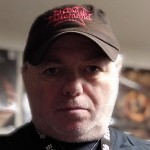

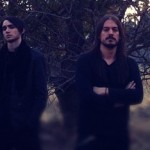
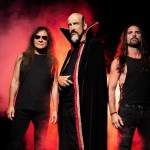
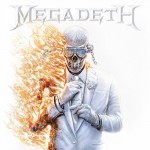
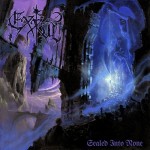

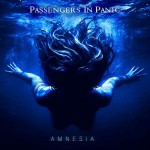





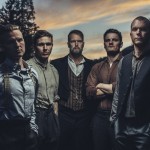
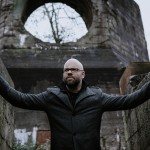

![[7+7]: Μουσικές στον κινηματογράφο, Vol. 2025](https://images.rocking.gr/cine/2026/150x150/movies2025-cover.jpg)
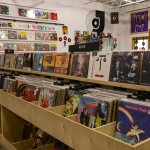
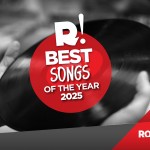


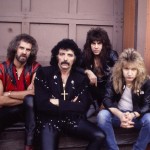

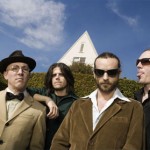










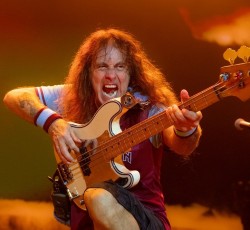

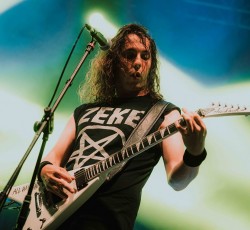
![[7+7]: Μουσικές στον κινηματογράφο, Vol. 2025](https://images.rocking.gr/cine/2026/250x230/movies2025-cover.jpg)
